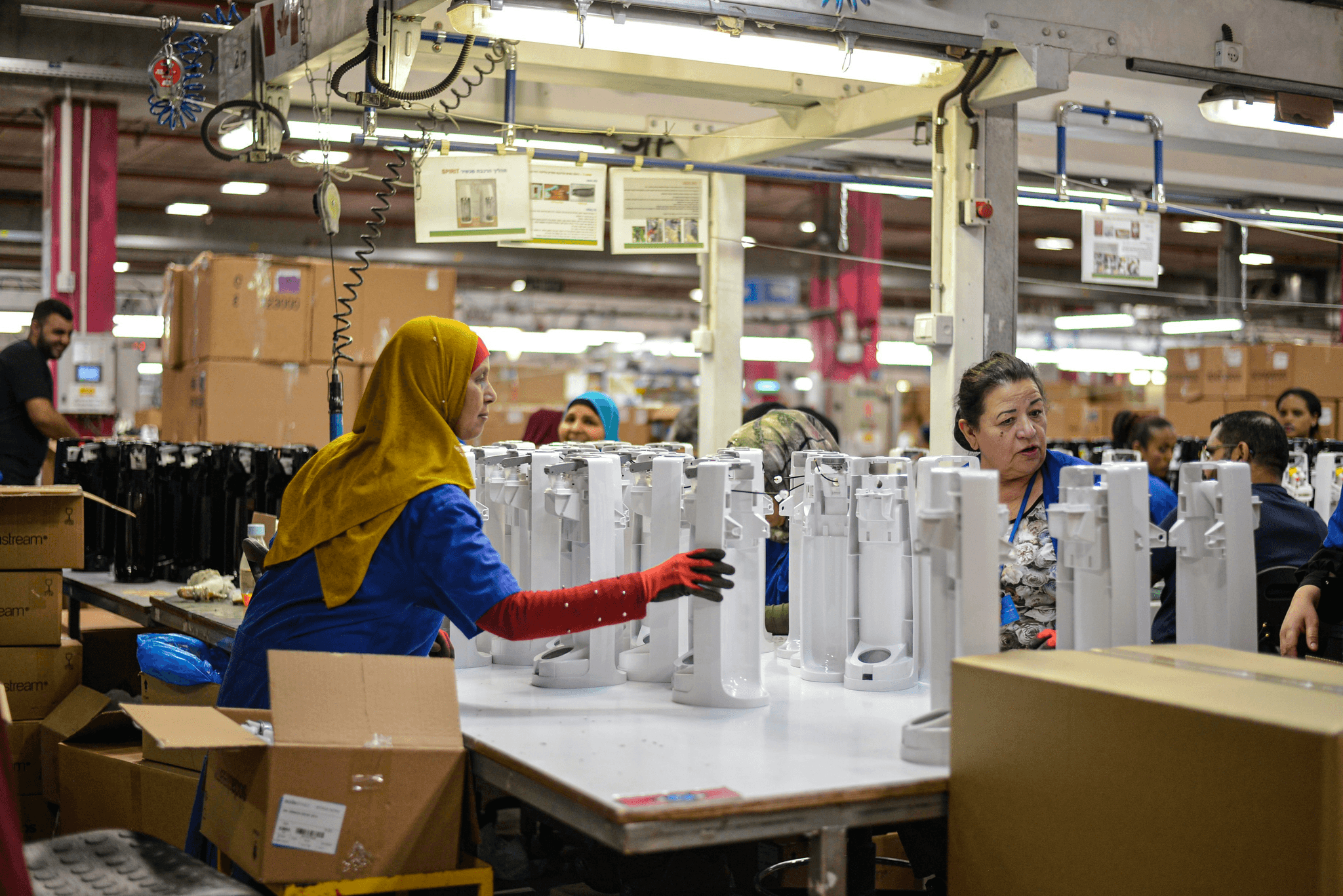Introduction

Understanding the Importance of Supplier Verification
Supplier verification is not just a checkbox on your procurement list; it's a vital step that protects your investment and reputation. By taking the time to verify a supplier in China, you minimize risks associated with poor quality products or unethical practices. This proactive approach not only safeguards your business but also lays the groundwork for tips for building long-term supplier relationships that are beneficial for both parties.
Common Pitfalls in Supplier Selection
Navigating the landscape of potential suppliers can be tricky, especially with numerous options available at your fingertips. One common pitfall is rushing into agreements without proper verification, which often leads to dealing with scams and fraud suppliers in China who may look good on paper but fail to deliver. To avoid these missteps, it's essential to conduct thorough research and have clear criteria for selecting partners who align with your business goals.
Key Resources for Finding Suppliers in China
Finding reliable suppliers requires leveraging various resources effectively; knowing where to look can significantly enhance your search process. Online marketplaces are an excellent starting point, but don't overlook trade shows and industry associations as valuable avenues for connecting with potential partners. These resources will help you identify reliable suppliers in China while providing insights into their credibility and capabilities—essential elements when aiming to build lasting partnerships.
Researching Potential Suppliers

When venturing into the world of international trade, particularly with suppliers in China, thorough research is essential. The right supplier can make or break your business, so it’s crucial to identify reliable suppliers in China who align with your needs and standards. This section will guide you through effective methods to research potential suppliers.
Online Marketplaces to Explore
Online marketplaces are a treasure trove for those looking to verify a supplier in China. Platforms like Alibaba, Global Sources, and Made-in-China.com offer extensive listings of manufacturers and wholesalers across various industries. However, while these platforms provide convenience and a wide selection, it’s vital to remain vigilant about how to avoid scams and fraud suppliers in China; always check reviews and ratings before proceeding.
Using online marketplaces also allows you to compare prices and product offerings easily, helping you identify reliable suppliers in China that meet your budgetary constraints. Make sure to utilize filtering options on these platforms for better results; this way, you can narrow down your choices based on specific criteria like certifications or minimum order quantities. Remember that even the most reputable online marketplace is not immune to fraudulent listings—so do your homework!
Utilizing Trade Shows and Expos
Attending trade shows and expos is another excellent way to verify a supplier in China while getting a firsthand look at their products and operations. Events such as the Canton Fair or the East China Fair showcase thousands of exhibitors from various sectors, allowing you direct access to potential partners. Meeting face-to-face not only helps build trust but also provides an opportunity for immediate negotiation—a key aspect when learning tips for building long-term supplier relationships.
Trade shows are an invaluable resource for networking as well; you’ll often find industry experts who can offer insights into which companies are trustworthy and reliable. Plus, being able to see products up close gives you a better understanding of quality than any online image ever could! Just remember that while trade shows present great opportunities, they also require preparation—do some background checks on exhibitors beforehand.
Engaging with Industry Associations
Engaging with industry associations can significantly enhance your ability to identify reliable suppliers in China while ensuring you're connected within the community. These organizations often have lists of vetted members or recommendations based on industry standards—perfect for verifying potential partners before making commitments! Additionally, they may host events or forums where businesses share experiences regarding how to avoid scams and fraud suppliers in China.
Memberships in such associations can also provide access to exclusive resources like market reports or educational materials that help refine your supplier search process further. By actively participating in discussions or attending workshops hosted by these groups, you'll gain insights into best practices for maintaining strong relationships with suppliers over time—essential knowledge if you're aiming for longevity!
Ultimately, investing time into researching potential suppliers through these avenues will pay off when it comes time for negotiations—so roll up those sleeves!
Initial Supplier Contact

Making that first contact with potential suppliers can feel like stepping into uncharted territory, especially when trying to verify a supplier in China. Your initial inquiry sets the stage for your entire relationship, so it’s essential to approach it thoughtfully. A well-crafted inquiry not only conveys professionalism but also helps you identify reliable suppliers in China who are genuinely interested in collaborating with you.
Crafting Your Inquiry
When crafting your inquiry, clarity and specificity are paramount. Instead of sending a generic message, tailor your communication to address specific products or services you’re interested in; this shows that you’ve done your homework and are serious about building a relationship. Moreover, including questions about their experience and capabilities can help you gauge whether they can meet your needs while also serving as a preliminary step to verify a supplier in China.
Remember to keep the tone polite yet assertive, as this reflects respect for cultural nuances while establishing your expectations. Avoid vague language; instead, be direct about what you're looking for and any requirements you have regarding quality standards or delivery timelines. This approach not only helps filter out potential scams but also sets the groundwork for tips on building long-term supplier relationships down the line.
Assessing Communication Skills
Once you've sent out your inquiries, pay close attention to how suppliers respond—this is one of the earliest indicators of their reliability. Effective communication is crucial when working with overseas partners; thus, assessing their responsiveness and clarity can help you identify reliable suppliers in China who prioritize customer service. If they take too long to reply or their responses are unclear or evasive, consider it a red flag.
Additionally, look at how well they understand and address your questions; good suppliers will provide detailed answers rather than generic responses. This level of engagement not only demonstrates their willingness to communicate effectively but also offers insight into how they might handle future interactions—essential if you're looking to establish lasting partnerships while avoiding scams and fraud suppliers in China.
Setting Expectations for Responses
Setting clear expectations regarding response times can streamline communication and foster mutual understanding from the outset. Let potential suppliers know when you expect replies—this could be within 24-48 hours—and encourage them to inform you if they need more time due to time zone differences or other commitments. By doing so, you're creating an environment where both parties feel comfortable communicating openly—a key factor when trying to verify a supplier in China.
It’s also wise to outline what kind of information you'll require during subsequent discussions—whether that includes pricing details, shipping options, or product specifications—to ensure everyone is on the same page moving forward. Establishing these ground rules early helps mitigate misunderstandings later on and reinforces that you're serious about avoiding scams while fostering tips for building long-term supplier relationships.
Conducting Due Diligence

When it comes to verifying a supplier in China, conducting thorough due diligence is non-negotiable. This process helps you avoid scams and fraud suppliers in China, ensuring that your investment is secure and your business relationships are built on trust. With the right approach, you can identify reliable suppliers in China who meet your standards.
Using AC&E for Legal Verification
One of the most effective ways to verify a supplier in China is through AC&E (Audit, Compliance & Evaluation). This service allows you to assess a supplier's legal standing by checking their registration details and compliance with local laws. By using AC&E, you can uncover any potential red flags that might indicate a scam or fraudulent activity.
Additionally, AC&E provides insights into the financial health and operational capacity of your potential suppliers. This information is crucial when you're trying to identify reliable suppliers in China who can deliver on their promises. Remember, a little extra effort at this stage can save you from significant headaches later on.
Checking References and Reviews
Another essential step in verifying a supplier in China involves checking references and reviews from previous clients. Don’t just take their word for it; ask for contacts of past customers who can vouch for their reliability and quality of service. Reading online reviews can also provide valuable insights into how they handle issues like delays or product defects.
While positive testimonials are great, be sure to pay attention to any negative feedback as well, as this might highlight potential pitfalls when working with them. Engaging directly with references will give you tips for building long-term supplier relationships based on transparency and trustworthiness. If multiple sources point out consistent issues, it’s best to steer clear.
Validating Business Licenses and Certifications
Validating business licenses and certifications is another critical aspect of due diligence when trying to verify a supplier in China. Ensure that the supplier possesses all necessary licenses required by Chinese law for their industry—this not only confirms legitimacy but also shows commitment to quality standards. You’ll want to request copies of these documents during your initial discussions.
In addition to licenses, look into any industry-specific certifications that may apply; these often reflect adherence to international standards which could be vital depending on your market needs. By doing this groundwork now, you're laying the foundation for solid partnerships while simultaneously protecting yourself from scams or fraud suppliers in China down the line.
Remember that due diligence isn't just about ticking boxes; it's about fostering an environment where both parties feel secure enough to engage fully—and that's key if you're looking to identify reliable suppliers in China!
Analyzing Supplier Capabilities

When it comes to sourcing products from China, analyzing supplier capabilities is crucial to ensure you’re partnering with a reliable source. This step not only helps you verify a supplier in China but also gives you insights into their operational strengths and weaknesses. By thoroughly evaluating potential suppliers, you can avoid scams and fraud, ensuring your investment is secure.
Requesting Product Samples
One of the best ways to verify a supplier in China is by requesting product samples before committing to a larger order. This allows you to assess the quality of the goods firsthand and ensures they meet your specifications and standards. It's also an excellent opportunity to gauge how willing the supplier is to accommodate your requests, which can be indicative of their service level in a long-term relationship.
When requesting samples, make sure you're clear about what you're looking for—this helps identify reliable suppliers in China who understand your needs. Keep in mind that some suppliers may charge for samples; however, this should not deter you if their offerings align with your expectations. Remember, receiving subpar samples could be an early warning sign of potential issues down the line; thus, it's essential to take this step seriously.
Evaluating Production Processes
Understanding how a supplier operates is vital when trying to verify a supplier in China effectively. Ask potential partners about their production processes, including machinery used, labor practices, and supply chain management strategies. A transparent production process often indicates reliability and can help you avoid scams or fraud that may arise from hidden operational inefficiencies.
During factory visits or virtual tours (if possible), observe the work environment and workflow efficiency; this will give you insight into whether they maintain high standards throughout production. Additionally, inquire about any certifications they hold related to quality management systems—these can serve as reassurance that the supplier adheres to recognized industry standards. Ultimately, well-structured production processes are key indicators that help identify reliable suppliers in China for long-term partnerships.
Understanding Quality Control Measures
Quality control measures are non-negotiable when determining whether or not you've found a trustworthy partner abroad; thus understanding these measures is essential for verifying a supplier in China effectively. Inquire about their quality assurance protocols—do they conduct regular inspections? What testing methods do they use? These questions will help illuminate how committed they are to maintaining product integrity.
Look for suppliers who have established quality control teams responsible for monitoring every stage of production—from raw materials through final inspection—to ensure consistency and compliance with specifications. This diligence not only protects your interests but also lays down the groundwork for tips on building long-term supplier relationships based on mutual trust and accountability. Remember: robust quality control measures are vital indicators that help identify reliable suppliers in China while safeguarding against potential pitfalls.
Navigating Cultural Differences

Navigating the cultural landscape of Chinese business can be both an exciting and daunting task. Understanding the nuances of relationships, negotiation styles, and local customs is crucial for anyone looking to verify a supplier in China. By embracing these cultural elements, you can significantly reduce the risk of falling prey to scams and fraud suppliers in China.
Building Relationships in Chinese Business
In China, business is often built on trust and personal relationships rather than just contracts or agreements. To effectively identify reliable suppliers in China, it’s essential to invest time in building rapport with potential partners. Engaging in social activities, such as dining together or participating in local events, can foster stronger connections that pave the way for successful long-term supplier relationships.
Moreover, understanding that patience is key cannot be overstated; rushing into decisions may lead to misunderstandings or missed opportunities. It's also beneficial to maintain open lines of communication after initial meetings to reinforce your commitment to a lasting partnership. Remember, when you genuinely care about building relationships, you'll find it easier to verify a supplier in China and ensure they align with your business values.
Understanding Negotiation Styles
Negotiation styles vary widely across cultures; therefore, knowing how Chinese suppliers negotiate can save you from potential pitfalls. Generally speaking, negotiations in China may involve indirect communication and a focus on group consensus rather than individual decision-making. Being prepared for lengthy discussions can help you avoid frustration while trying to identify reliable suppliers in China.
It's also important to approach negotiations with flexibility and a willingness to compromise; hardline stances might be perceived as disrespectful or aggressive. Additionally, showing respect for hierarchy within companies will go a long way—acknowledging seniority can smoothen discussions significantly. Ultimately, by adapting your negotiation style and respecting their approach, you'll enhance your chances of successfully verifying a supplier in China without falling victim to scams.
Respecting Local Customs and Practices
Respecting local customs is not just polite; it's essential for establishing credibility when working with Chinese suppliers. Familiarizing yourself with common practices—such as gift-giving during meetings or using proper titles—can demonstrate your commitment to understanding their culture while helping you avoid any missteps that could jeopardize negotiations or partnerships. This awareness will also assist you when seeking tips for building long-term supplier relationships.
Additionally, being aware of national holidays and traditional festivals will help you plan meetings more effectively since many businesses close during these times. Incorporating these customs into your interactions shows respect and builds goodwill among potential partners—a vital factor when looking to verify a supplier in China successfully. Ultimately, respecting local customs not only strengthens relationships but also protects against misunderstandings that could lead to engagement with fraudulent suppliers.
Conclusion

In the complex world of international trade, finalizing your supplier choice is akin to finding the right dance partner—timing and compatibility are everything. After thoroughly vetting potential partners, ensure that your selected supplier aligns with your business goals and values. Remember, it’s not just about the price; it’s about building a relationship that can withstand the test of time.
Finalizing Your Supplier Choice
When you’re ready to verify a supplier in China, take a moment to reflect on all the information you've gathered. Make sure you’ve assessed their capabilities, communication style, and reliability before signing on the dotted line. Choosing wisely now can help you avoid scams and fraud suppliers in China down the road.
Ensuring Ongoing Communication
Once you've made your selection, establishing clear lines of communication is essential for long-term success. Regular check-ins can help ensure that both parties are aligned on expectations and any changes in production or market conditions. Tips for building long-term supplier relationships include setting up regular updates and being transparent about any challenges you might face together.
Protecting Your Interests with Legal Support
Even after selecting a reliable supplier, it’s crucial to protect yourself legally as you navigate this partnership. Having a solid contract in place can safeguard against misunderstandings and provide recourse should issues arise later on. To effectively identify reliable suppliers in China, consider consulting legal experts who understand local laws and practices—this will keep you ahead of potential pitfalls.
